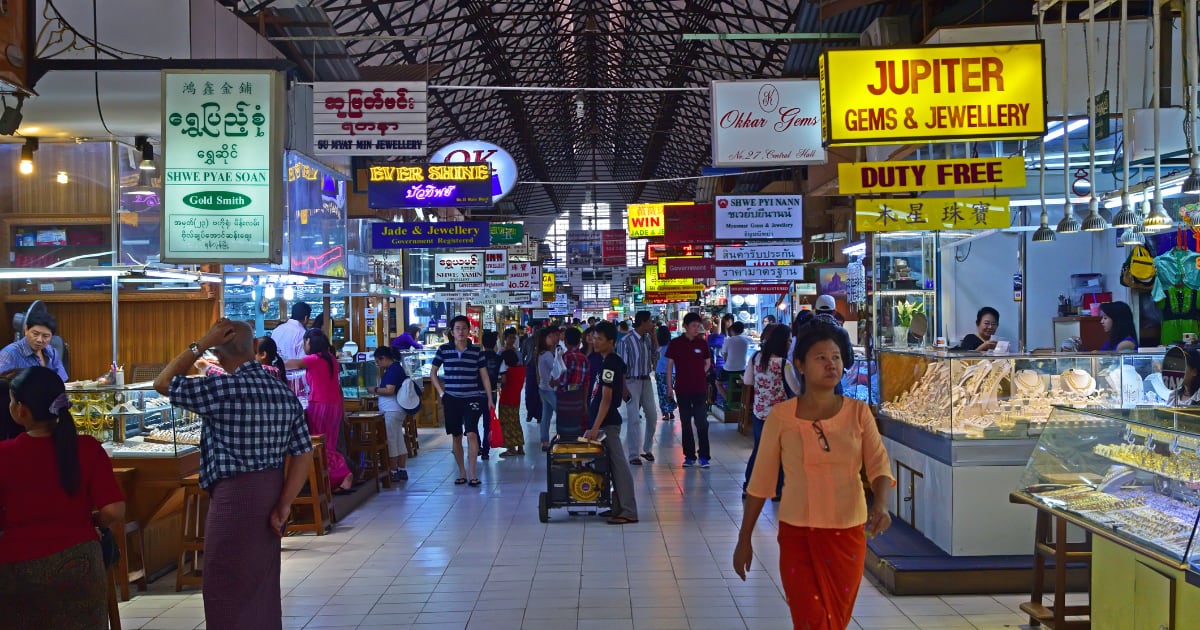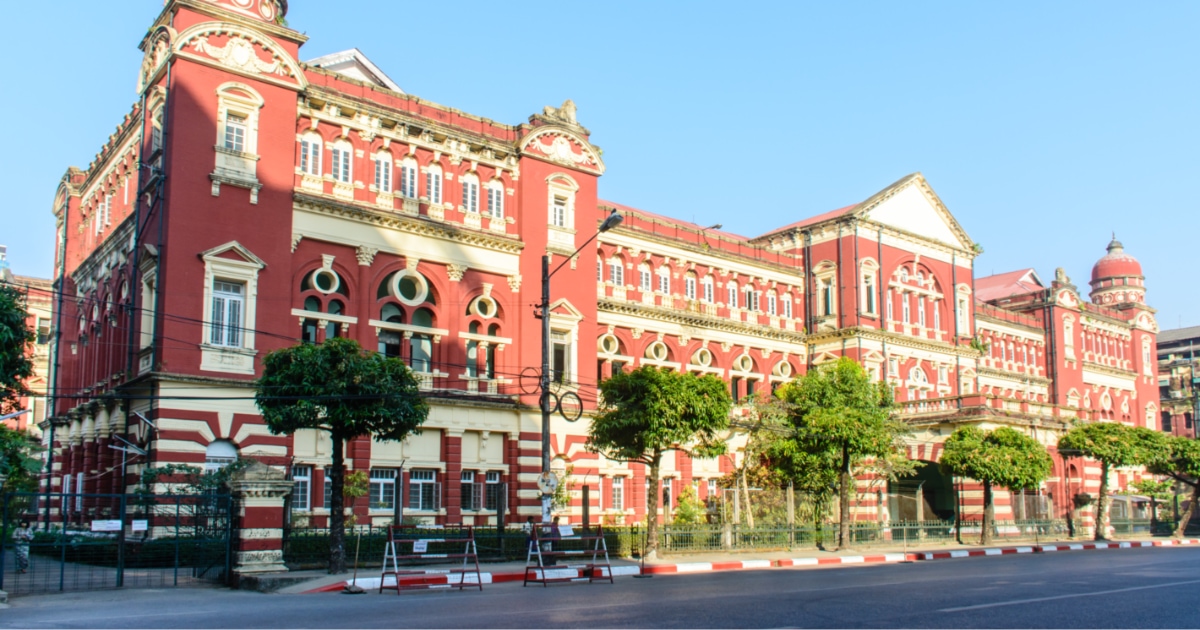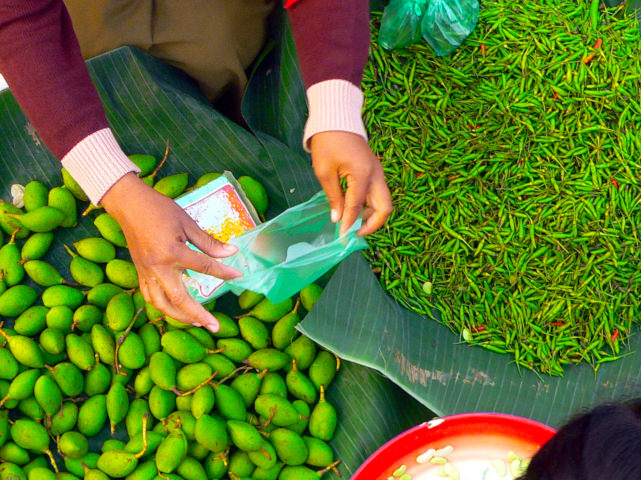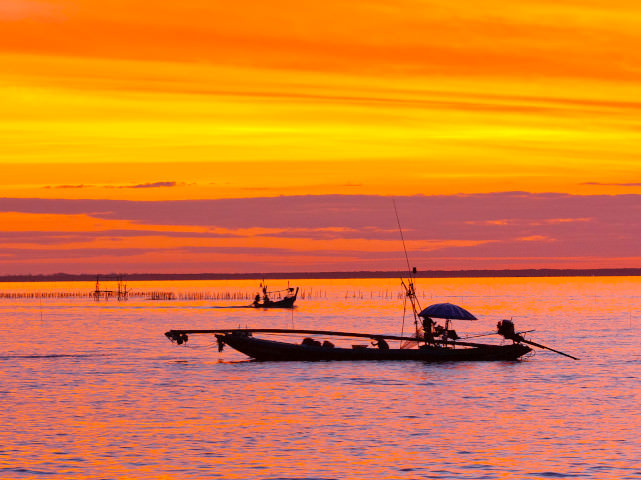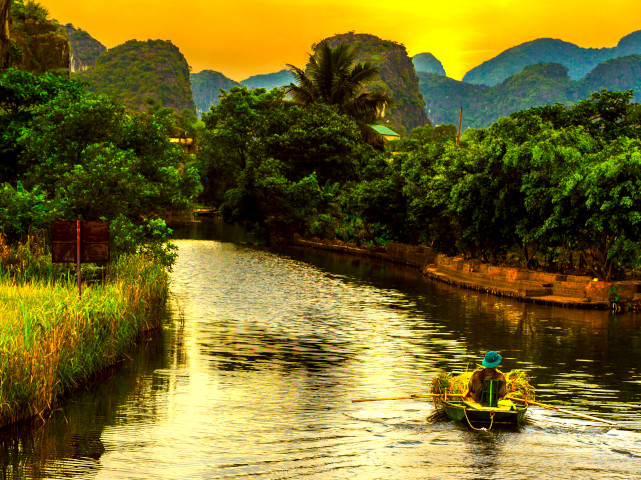Myanmar Highlights
August 2019
Download PDF | Download word version
Government-approved foreign direct investment (“FDI”) into Myanmar increased by 77% to US$2.3 in the first-half of 2019 compared to US$1.3 billion in the same period in 2018. Singapore was largest investor (investing US$1.3 billion through 13 approved projects), followed by China (investing US$330 million through 60 approved projects). The industries receiving the greatest investments were the transport and communications industry (US$1 billion), the manufacturing industry (US$800 million) and the services industry (US$160 million). According to the World Bank, Myanmar’s growth in the medium term “will be supported by a gradual rebound in infrastructure investment and higher productivity in sectors undergoing liberalization, such as wholesale and retail and the insurance and banking sectors”. The World Bank expects that the implementation of large infrastructure projects (including construction in economic corridors, and energy and transport projects) are likely to expand, and that the growth in the manufacturing sector will continue. According to Thant Sin Lwin, Director General of Directorate of Investment and Company Administration, there has been an increase in foreign investment into the production and industrial sectors and a sharp decline in foreign investment into real estate and housing sectors in Myanmar. Over the past five years, most foreign investment has been into the hydropower production and natural gas sectors. Between the 1988-89 and 2018-19 financial years, 1,725 foreign investment enterprises have been permitted to invest in Myanmar, and their investment volume amounts to over US$80.234 billion. The greatest overall recipient of foreign investment is the natural gas and oil sector, with the Myanmar government approving 154 foreign investments worth over US$22 billion. This is followed by the energy sector, with 21 foreign investments worth over US$21 billion having been approved. Myanmar currently has one special economic zone, Thilawa Special Economic Zone (“Thilawa SEZ”), in which, as of the end of May 2019, over 110 foreign investments valued at over US$1.7 billion are allowed in the production, trading, other services, transportation, real estate, and hotel and tourism sectors. Recently, Myanmar has increased activities to attract FDI, including organising promotion forums in Yangon Region, Tanintharyi Region, Rakhine State and Chin State. (Sources: https://www.mmtimes.com/news/fdi-jumps-77pc-us23-billion-first-half-2019.html, 1 August 2019; http://documents.worldbank.org/curated/en/326771560523871008/pdf/Building-Reform-Momentum.pdf, June 2019; and https://elevenmyanmar.com/news/more-foreign-investments-enter-in-production-and-industrial-sectors-dica, 29 July 2019)
Myanmar Arbitration Centre opened
The Myanmar Arbitration Centre (“MAC”) opened on 3 August at the Republic of the Union of Myanmar Federation of Chambers of Commerce and Industry (“UMFCCI”). Through the MAC, Myanmar businesses will be able to resolve commercial disputes without going to a court of law, saving businesses money and time. Parties to a dispute may negotiate under their preferred law and procedures. The MAC will not cover labour disputes or government investment matters. Further, the MAC will have the authority to issue punishments. Over 40 experts are undergoing a training course, who will hear disputes brought to the MAC. Parties may appoint any arbitrator from the MAC at a fee. The Commercial Disputes Coordination and Mediation Work Committee of the UMFCCI has sought to establish an arbitration centre since 2017. The MAC has been registered as a company with Myanmar’s company register, the Directorate of Investment and Company Administration, and the approval to form the MAC was granted on 11 March 2019. (Sources: http://www.mizzima.com/article/commercial-arbitration-centre-be-opened, 1 August 2019; and https://www.mdn.gov.mm/en/myanmar-open-arbitration-centre-resolving-commercial-disputes, 1 August 2019)
First Myanmar-China overland barter trade agreement signed
An agreement for overland barter trade was signed on 25 July 2019 between Mandalay Rice Development Company (“MRDC”) and Kunming Green Color Trade Co Ltd from China’s Yunnan province. This is the first overland barter trade agreement between private companies following a memorandum of understanding between the Myanmar and Chinese governments on overland barter trade signed in April 2019. Both companies are currently awaiting approval from their respective governments. Under the agreement, MRDC will export 100,000 tonnes of rice in return for chemical fertilizers, construction material, electric appliances and agricultural machinery manufactured in Yunnan province which may be imported with a 5% discount to the market price (although determination of the valuation of the price of Chinese goods is unclear). Both companies would act as the intermediaries for goods traded under the barter system, with companies in Myanmar wishing to import goods from China or sell rice to China being able to partner with the MRDC. However, the agreement has been subject to criticism, as Myanmar businesses will need to find buyers for the goods that they receive in exchange. U Soe Tun, Myanmar Rice Federation central executive committee member, considers that it would be more convenient for Myanmar businesses to receive payment for exports to China in cash, and that there may not always be demand for goods received in exchange and there are risks of disruptions to cash flows. U Khin Maung Lwin, Ministry of Commerce deputy permanent secretary, justified that the barter trade agreement is aimed at solving problems resulting from the informal trading arrangements at the border. Traders often smuggle rice into China as a result of volatile import tariffs imposed by the Chinese government. (Sources: https://www.mmtimes.com/news/first-overland-barter-trade-agreement-signed.html, 29 July 2019; and https://www.mmtimes.com/news/traders-losing-end-will-need-time-get-used-barter-trade-deal.html, 31 July 2019)
19 million tons of crude oil and 13 million tons of gas exported to China
Since the opening of the Myanmar-China crude oil and natural gas pipelines until June 2019, Myanmar has exported 13.44 million tons of gas and 19 million tons of crude oil to China, according to Yunnan Province government data. The export of gas through the pipelines commenced in 2013 and crude oil in 2017. It is expected that in the 2018-2019 fiscal year, Myanmar will receive K1,678 billion from offshore oil and gas production, K193 billion from onshore oil and gas production, and K306 billion in royalties. In the 2018-2019 fiscal year, Yadana project is expected to produce 44% of gas, Shwe project to produce 28%, Zawtika project to produce 19% and Yetagon project to produce 19%. (Source: https://elevenmyanmar.com/news/1344-million-tons-of-gas-19-million-tons-of-crude-oil-exported-to-china-till-june-this-year, 29 July 2019)
Recent increase in foreign retail petroleum activity
Since 2017, the Myanmar government has permitted foreign oil and gas companies with retail operations to establish business operations in Myanmar, subject to the approval of the Ministry of Electricity and Energy (“MOEE”). Foreign oil and gas companies are allowed to participate in the importation, storage, distribution and sale of fuels. The Myanmar Investment Commission and the Directorate of Investment and Company Administration are both responsible for the licensing of foreign petroleum retail operations, the Ministry of Commerce is responsible for overseeing quality, and the MOEE provides comments in relation to the approval process. Currently, only one foreign oil and gas company (PetroChina International through its Singapore unit, Singapore Petroleum Co) has commenced operations in Myanmar. However, in recent months, there has been an increase in foreign retail petroleum activity, with PTT Oil and Retail Business signing an agreement to establish 70 petrol stations in Myanmar, and the SK Group acquiring 35% of Best Oil Company, the second-largest energy firm in Myanmar, for US$130 million. In June 2019, the Yangon Region Government stated it would enhance efforts to facilitate the opening of more Yangon Petrol Co fuel stations so as to meet higher consumer and business demand. (Source: https://www.mmtimes.com/news/foreigners-welcome-set-retail-petroleum-business.html, 31 July 2019)
Myanmar, a specialty coffee producer
Recently, Myanmar began producing specialty coffee, with the adoption of new methods to harvest cherries and process coffee beans. Indeed, Myanmar is quickly gaining an international reputation for its high-end coffee. According to U Myo Aye, chairman of the Myanmar Coffee Association, there has been a surge in demand for Myanmar’s specialty coffee, which is being exported to Asian and Western countries. Specialty coffee generally refers to high-value coffee that is free from defects, and to be graded as “specialty”, the coffee must satisfy global standards and a minimum score requirement in a quality test. Previously, coffee production in Myanmar focused on commercial grade coffee. As Myanmar’s economy has opened up to foreign investment, several organisations have put focused on expanding Myanmar’s coffee trade. In 2014, a nonprofit organisation, Winrock International, with $27 million project funding from the United States Agency for International Development, began the Value Chain for Rural Development (VC-RD) project, with the aim of improving food security and enhancing the market competitiveness of agriculture products, including coffee, soybean, ginger, sesame and melon, in Myanmar. Through the project, Winrock provided physical resources, training, market linkages and business skills, and experts taught rural farmers how to produce higher value speciality coffee. As of January 2018, almost 74% of participants in the project had adopted at least one new farming practice or technology. Shwe Taung Thu, Myanmar’s first smallholder coffee enterprise, has benefited from the project, receiving quality-based premiums from domestic and international buyers, and famers are earning two to four times more than previously. (Source: http://www.mizzima.com/article/burgeoning-speciality-coffee-myanmar, 1 August 2019)
Yakult enters Myanmar
Yakult, the Japan-headquartered probiotic drinks maker, commenced production at its new $US47 million factory in Myanmar on 1 August 2019. Yakult’s probiotic drink contains over 8000 lactobacillus casei strain stirota, which help maintain a balance of good and bad bacteria for a good digestive system. There are currently over 40 million consumers of Yakult products in 40 countries, with the average sales per day amounting to approximately US$40 million. According to Mr. Hideki Kawasaki, Yakult Myanmar Co Ltd’s managing director, all stages of production at the new factory in Thilawa SEZ are in line with global production standards. Mr. Hideki Kawasaki also noted that Thilawa SEZ (with its infrastructure, power, machinery and one-stop service centre) has increased the confidence of Japanese investors who wish to expand into Myanmar. The commencement of business in Myanmar will bring job opportunities in Myanmar, with so-called “Yakult Ladies” selling Yakult drinks on a door-to-door system. Yakult’s operations in Myanmar have commenced in Yangon, and the company intends to expand to Mandalay, Nay Pyi Taw, Taunggyi, and Mawlamyine, covering the whole of Myanmar in five years. (Source: https://www.mmtimes.com/news/yakult-bets-myanmar-market-further-growth.html, 1 August 2019)
Government encourages investments in sustainable tourism
U Thaung Tun, the chair of the Myanmar Investment Commission and Minister of Investment and Foreign Economic Relations and Minister of Hotels and Tourism, has encouraged investors to focus on sustainable development and quality when considering investing in the Tanintharyi Region. These comments are made in the lead up to the October Tanintharyi Region Investment Forum, which has the goal of attracting investment to the Tanintharyi Region. Although tourism is a major source of revenue for the region, there are only thirty hotels and ten guesthouses. Recently, on 7 July 2019, Bagan was named as a UNESCO World Heritage Site. More than 210,000 tourists visited Bagan in the first half of 2019, an increase of over 90,000 from the same period in 2018. With its new World Heritage status, it is expected that the number of tourists to Bagan will increase significantly. The Myanmar government has also called for investments in tourism in other areas of Myanmar, including Rakhine and Chin. The government relaxed visa requirements for visitors from Asia in October 2018, resulting in visitors from mainland China, Japan, South Korea, Macao and Hong Kong to Myanmar increasing by approximately 200,000 over last year, the majority of which are from mainland China. (Source: https://www.mmtimes.com/news/govt-calls-sustainable-tourism-investments-tanintharyi.html, 31 July 2019)
Sugar mill owners and sugar-cane farmers seek ban on refined sugar imports
Sugar mill owners and sugar-cane farmers in Myanmar are demanding a ban on refined sugar imports and a halt on the issuance of re-export permits for refined sugar. In mid-2017, China, the largest importer of sugar from Myanmar between 2015 and mid-2017, stopped importing sugar from Myanmar in order to protect domestic Chinese production. This has resulted in a pile up of stocks in warehouses and a decrease in refined sugar prices to K960 per viss (equivalent to 1.6 kilograms), the trading price in 2009. Traders are also seeking permission to be able to sell sugar in the local Myanmar market, because prolonged storage may reduce sugar quality and storage rental costs have increased. Sugar mill owners are requesting to be allowed to produce ethanol. In the 2018-2019 sugar season, sugar mills purchased less cane from sugar-cane farmers and did not pay farmers on time. Further, one sugar mill owner has postponed plans to establish a new sugar mill in Katha, Sagaing Region. According to Daw Yi Yi Mon, the Ministry of Agriculture, Livestock and Irrigation director, a promising solution to the industry’s challenges may be found at the September sugar forum. (Source: https://www.mmtimes.com/news/stakeholders-want-temporary-ban-refined-sugar-imports.html, 29 July 2019)
Exports undermined by lack of proper lab facilities and failure to comply with EU standards
Myanmar’s export of aquaculture products to the European Union (“EU”) has been stifled by the lack of proper laboratory facilities to test for contamination of aquaculture products, according to Daw Toe Nanda Tin, the vice-chair of the Myanmar Fishery Federation. Myanmar currently exports aquaculture products, including tilapia, giant sea perch and white prawns, to the UK, Italy, France, Cyprus, The Netherlands, Sweden, Greek, Belgium and Germany. Aquaculture exports to the EU constitute 8% of total fisheries exports, with migrant workers being the major consumers. Approximately 20% of the 125 fish processing plants in Myanmar have clearance for EU export, and “stringent EU regulations concerning food safety and handling is holding back more fish processors from selling their products” according to U Thet Naing, deputy director of the Fisheries Department. Further, according to U Thet Naing, EU officials conduct on-site visits to the processors for inspection, and “they only allow them to sell to the EU if all procedures conform to EU criteria”. U Win Kyaing, general secretary of the Myanmar Fishery Federation, is encouraging processors to increase efforts to conform to EU standards so as to benefit from the 13.7% tax exemption granted to Myanmar in relation to aquaculture products. Since May 2019, the EU allowed Myanmar to export ten aquaculture products. (Source: https://www.mmtimes.com/news/aquaculture-exports-limited-lack-test-labs.html, 2 August 2019)
FDI into Myanmar
Myanmar Arbitration Centre
Overland Barter Trade Agreement
Myanmar-China crude oil and natural gas pipelines
foreign oil and gas companies in Myanmar
Winrock International specialty coffee production
Yakult Thilawa SEZ
Investments In Sustainable Tourism in Tanintharyi Region
china sugar import ban
export of aquaculture products
Mandalay Rice Development Company PRC
Foreign direct investment approval
This newsletter is for information purposes only. Its contents do not constitute legal advice and it should not be regarded as a substitute for detailed advice in individual cases.
Transmission of this information is not intended to create and receipt does not constitute a lawyer-client relationship between Charltons and the user or browser.
Charltons is not responsible for any third party content which can be accessed through the website.
If you do not wish to receive this newsletter please let us know by emailing us at unsubscribe@charltonslaw.com




